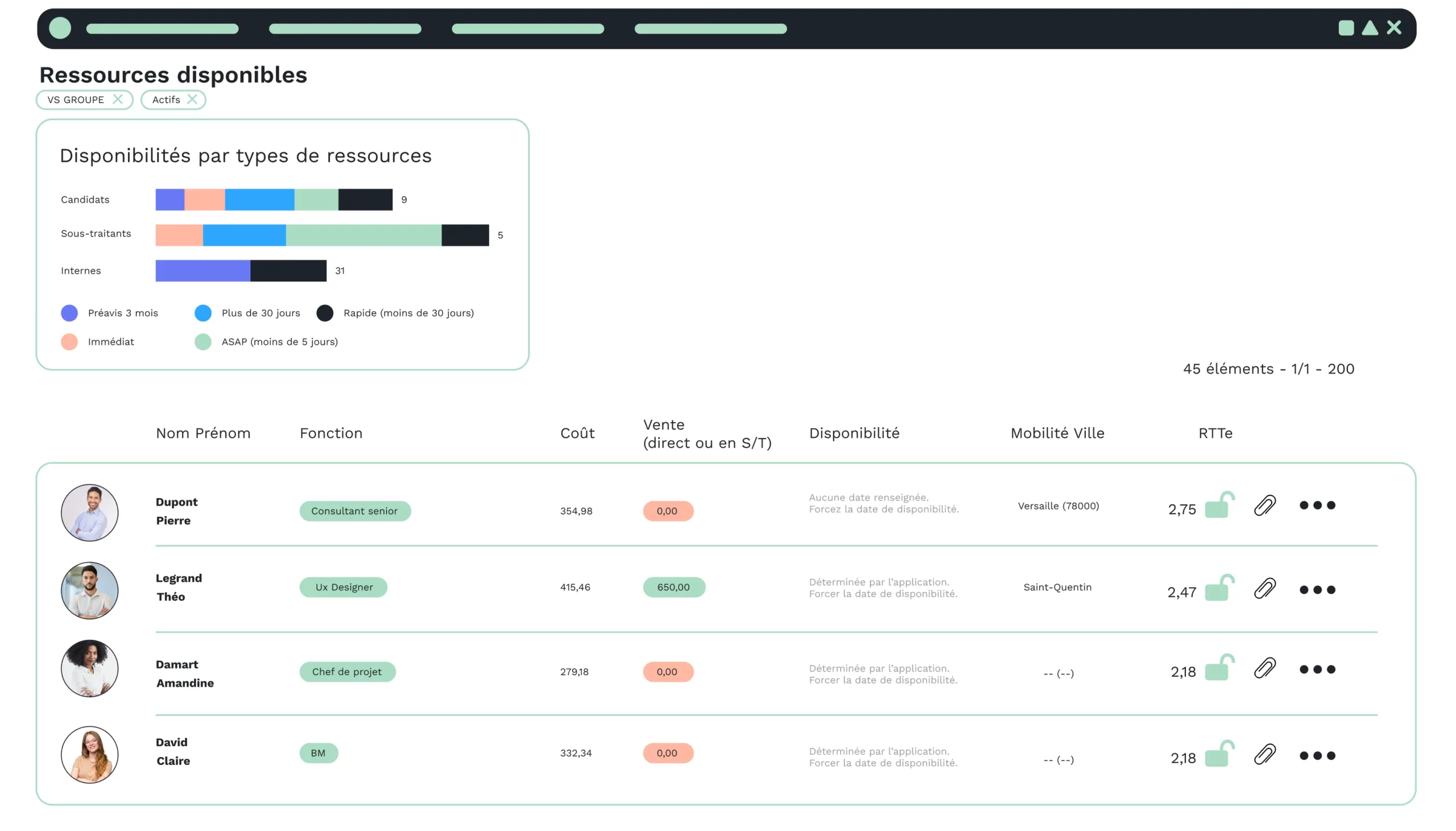Should I choose a general-purpose ERP or an industry ERP? This is a legitimate question to ask when you want to implement an ERP system in your IT services company or consulting company.
Before embarking on your search for management software, you drew up an ERP specification listing all your needs and expectations. These are the criteria on which you will base your benchmark.
Then as you begin your research, you realize that the ERP market is vast between On Premise ERP, SaaS ERP, generalist ERP and business ERP.
And you don’t know which way to turn. Don’t panic, in this article we’ll tell you the difference between a general-purpose ERP and a business ERP, so you can make the right investment choice.
What are the differences between a general-purpose ERP and a specialized ERP? And which one to choose?
What is a general-purpose ERP?
A general-purpose ERP is a so-called horizontal or cross-functional software package, designed to meet the needs of all types of business sectors and professions.
What is a business ERP?
A business ERP is a kind of vertical ERP specialized in a particular sector or trade.
For example, an ERP dedicated to IT services companies.
The advantages of integrated management software for IT services companies
Implementing an ERP management solution, whether general-purpose or business-specific, brings the same benefits:
- A unique database.
- Automation of time-consuming, repetitive tasks in business processes.
- Improved internal processes and operational efficiency.
- Data reliability due to the uniqueness of the information system.
- Better traceability of information.
- A cross-functional vision of the company’s activities.
- Reporting and dashboards that provide visibility and thus facilitate decision-making and better management.
- Improved company growth and competitiveness.
The benefits of a French ERP solution are proven by numerous testimonials and barometers. But it’s all a question of choice. That’s why, right from the start, you need to identify the criteria that will make your business management software the one best suited to your culture and operations.
Differences between a general-purpose ERP and a business ERP
Now it’s time to analyze the advantages and disadvantages of both types of software package, to help you make the best investment choice.
1. Functional coverage
An industry ERP is a turnkey solution tailored to the business it specializes in. In this way, the ERP solution offers functional building blocks to meet the standards and operating particularities of the sector in question.
For example, business management for an ERP dedicated to consulting firms.
A general-purpose ERP system, on the other hand, offers a standard set of modules to meet the primary needs of any company, whatever its sector of activity.
For example: financial management, human resources management, purchasing management, etc.
In short, the functionalities of a business ERP software package will only be compatible with a company in the sector for which the ERP software has been developed, whereas for general-purpose ERP software, the functionalities are more flexible to adapt to any company, at least at first glance.
2. Implementation deadlines
Thanks to its specialization, a business management software package meets the company’s business needs. As a result, it is directly supplied with several business modules required for implementation within the company. Unlike horizontal ERP, it’s quicker to get up and running.
The latter will require more extensive development to meet the requirements and standards of the company’s sector of activity.
To return to the previous example, a consulting firm that opts for a generalist solution will not have a case management module, which is specific to its business; it will therefore have to have it developed, which will delay implementation and generate additional costs.
3. Customization costs
Whether it’s a business or general Enterprise Resource Planning (ERP) system, it’s possible to have new functionalities developed. It should be noted, however, that for a vertical ERP system, the demand for customization will be lower than for a transversal ERP system.
The reason for this difference in cost is that business management software is already adapted to the specific needs of the company, so development requests are made for even more specific cases.
On the other hand, as mentioned above, a general-purpose ERP needs to be adapted both to the specificities of the sector and to the needs of the company.
As a result, additional development costs are likely to rise more quickly.
4. Business expertise
Another point that will make all the difference is the software publisher’s business expertise. In the case of a business ERP, the editor is specialized in the sector of activity, which means he understands the ins and outs of it. This will ensure mutual understanding between the two stakeholders (publisher and customer).
For a general-purpose ERP, the company will probably need to call on an integrator specializing in this sector to facilitate exchanges, or to ensure that its needs are clearly understood.
5. Scalable solution
A final point of differentiation is the ability of business ERP software to evolve in line with the businesses or sectors for which its functional scope was designed.
This will be more restrictive for a general-purpose ERP system, since it is adapted to all professions.
As a result, in the long term, the IT application will not cover all the business needs associated with the company’s sector of activity.
To conclude on the choice between a general-purpose ERP and a business ERP
Whether you’re a large company, an SME or a very small business, implementing ERP software in your IT services company or consulting firm raises many questions, starting with the type of solution to invest in.
General or business ERP? Both solutions have their advantages and disadvantages.
Implementing ERP software is beneficial for IT services companies, because it saves time, dematerializes certain processes, meets the specific needs of the organization’s operations and makes it more responsive.
A business ERP is adapted to specific businesses: as we have seen with business management, which is specific to certain sectors. Through its various modules, the solution will offer functionalities adapted to the businesses for which it was developed.
General-purpose ERPs tend to be set up in companies with no specific operating requirements. In fact, for very basic functionality, a general-purpose ERP might be appropriate (customer relationship management, invoicing, inventory management, etc.).
This means that a company opting for a business ERP system will benefit from the vendor’s expertise, and a turnkey solution that can be used quickly and requires little or no additional development.
Nevertheless, every company operates differently, whether or not it’s in the same business sector. That’s why, even with a business ERP, there can always be specific developments.
On the other hand, a general-purpose ERP, to be adapted to the specificities of a business or sector of activity, will require more developments, more time in the implementation phase and therefore more costs.
There’s nothing to stop you selecting a few generalist ERPs and a few industry-specific ERPs to analyze which solution offers you the best user experience.
Read also







